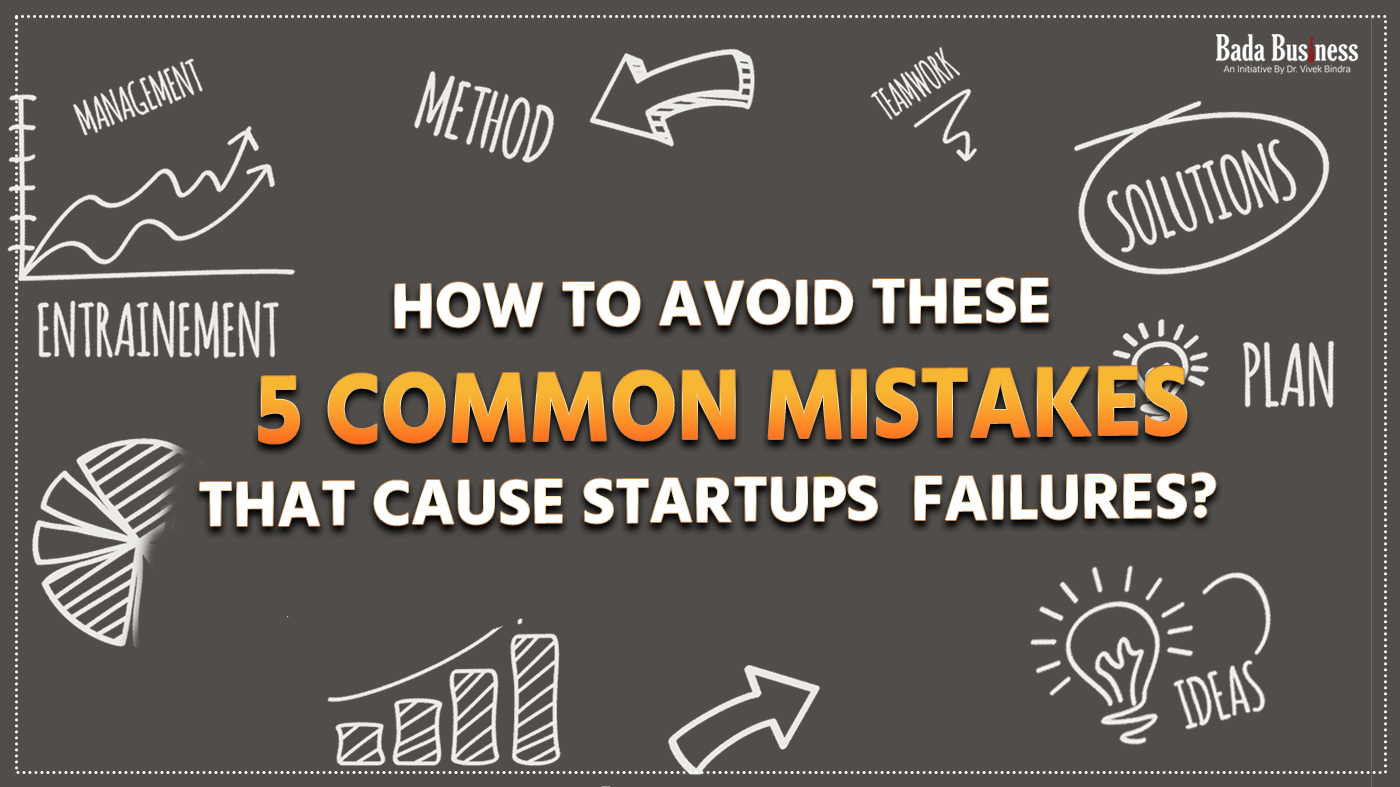India is the 3rd largest startup ecosystem. Though the immense growth and support for startups is a pleasant change, the hard fact is that most of the startups in India fail within 5 years of their launch, as per a report by IBM Institute for Business Value and Oxford Economics.
One major reason behind the failure of any startup is the lack of innovation. But that’s not it! Another factor that contributes to startup failure is not learning from past mistakes and repeating them. Here is a list of five common pitfalls that every entrepreneur makes at the early stages that could cost them their dream venture:
1. Not Hiring People Who Think Out Of the Box!
Many entrepreneurs hire people just like themselves. Avoiding this trap is essential to make a startup business successful. Without people who challenge the stereotypes and the founders' thinking, a startup fails to identify new opportunities or spot risks until it's too late.
Avoiding this trap is essential to make a startup business successful. Startups should hire people who think out of the box and know no creative boundaries. The diversity of ideas, skill sets, and backgrounds are the key essentials of every successful startup. You can watch amazing videos by Dr. Vivek Bindra- the best business coach in India to learn how to hire the right people for your organization!
2. Rushing After Funds
Capital is essential. But this does not mean that every startup should rush after it. Speed is important, yes, but without breaks, it will result only in a misadventure. Finding a balance speed to find the right fit is equally essential.
Finding perfect Venture Capital is just like finding the right partner for marriage. Take enough time to find the right match- and avoid jumping at the first or the most extensive check.
To avoid a situation like that, put in a considerable amount of time to find a VC partner that will provide thoughtful guidance, and mentorship and will be there for you during the challenges.
3. They Don’t Consider Customer’s Pain Points
Too often founders get overly enthusiastic about their ideas related to their product or service. They often believe that once they build a product, customers will come. But building a product or a service without any customer validation or A/B testing can be dangerous for a business.
Instead, founders of startups should always find an alpha customer and then create a product to solve the customer`s biggest pain point. Creating a customer-centric product doesn't happen by just sitting around a conference table brainstorming. The idea to build an amazing product comes from seeking out and tackling the real problems in the world that already exist. If you are confused about your business growth, you can hire the best business coach in India.
4. No Go-to-Market Plan
Entrepreneurs should document a clear and concise path to their profitability. To chart this document they should conduct rigorous research and analysis that challenge their market estimates.
This requires an in-depth knowledge of the strengths and weaknesses of their market competitors. They should also determine the company's proprietary advantage in each market segment it is looking to penetrate.
It is also important to be prepared in advance to be able to shift the business with technological advancement or according to customer needs. And while adaptability is crucial, having a focused plan is also essential. As a startup the resources are generally limited, thus, it is important to be laser-focused for maximum impact.
5. Lack of Strategic Partnerships
Many startups think about partnerships just in terms of capital and checks. But startups also require strategic alliances that will help them refine their business models, and new customers, scale revenues, and generate market awareness.
By making partnerships with large and established companies, startups can save costs on R&D resources and the expertise of their professional team.
Want to know what are the other pitfalls that entrepreneurs should avoid? Know it all from the top industry experts with our Business Coaching Program. To know more, click here: www.badabusiness.com
















